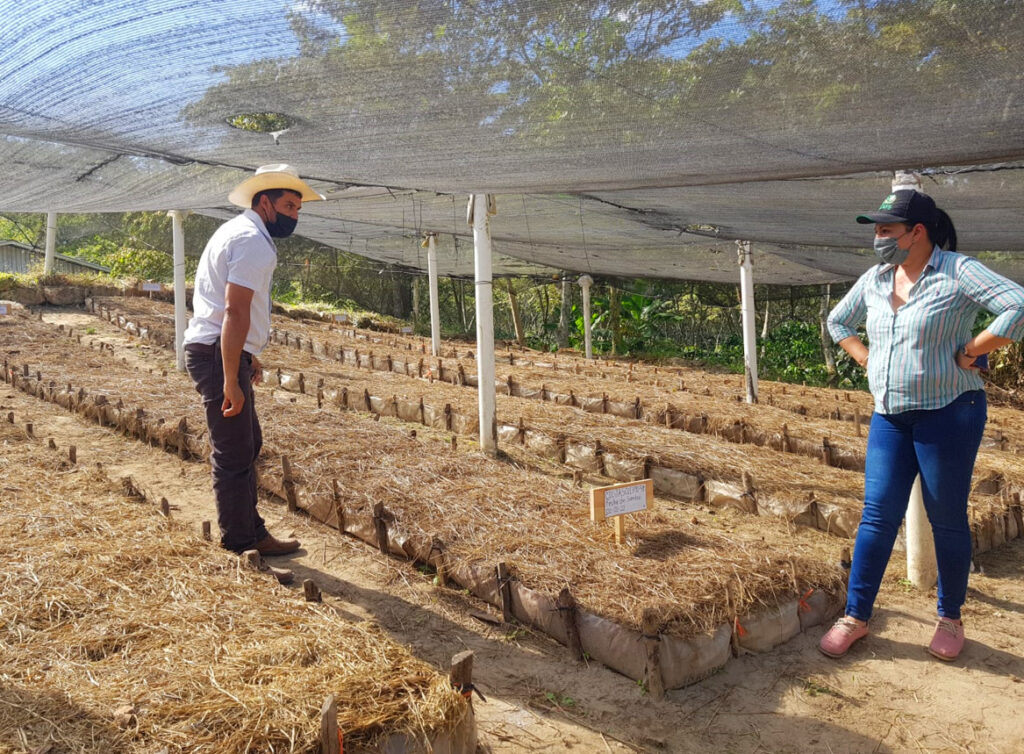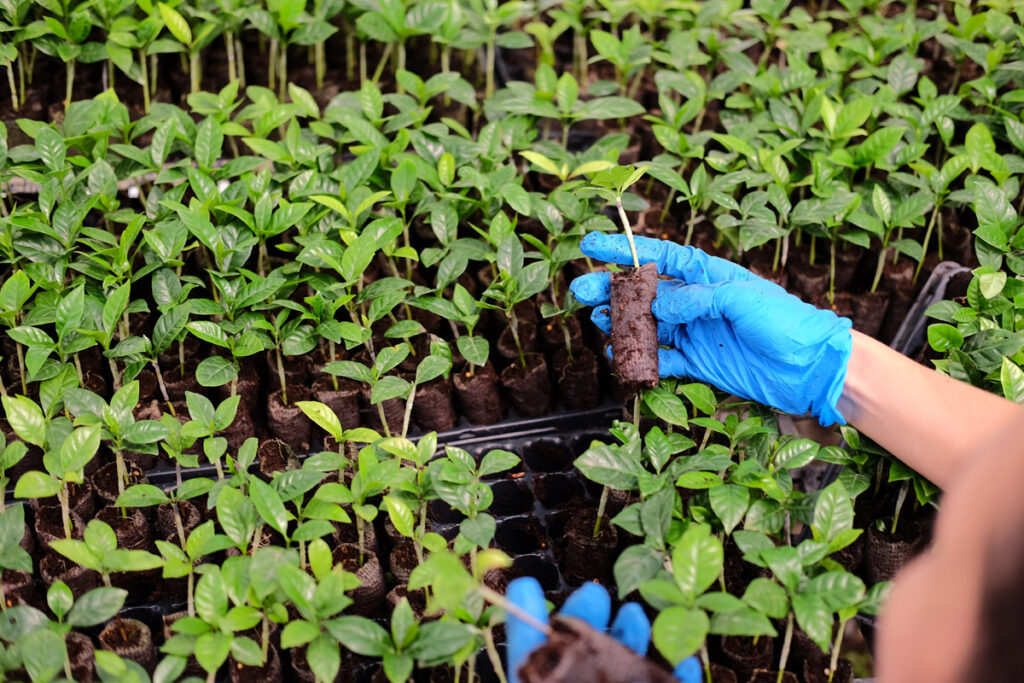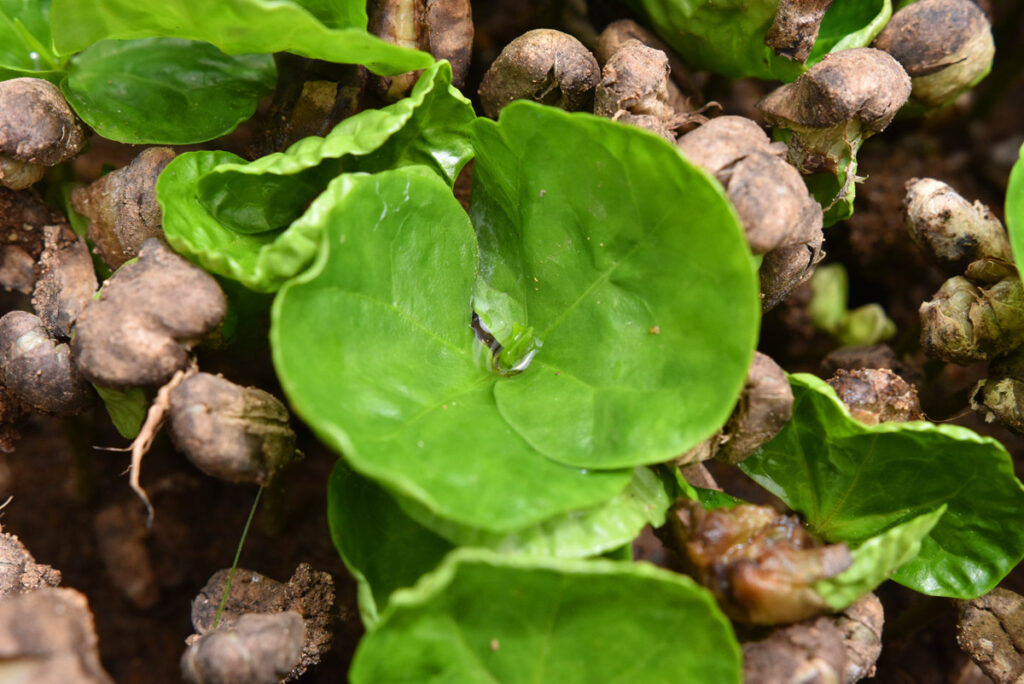The WCR Verified program is a World Coffee Research initiative in charge of certifying that coffee seed producers and nurseries are producing genetically pure, healthy plants. This certification program is designed to provide independent, science-based quality control and assurance at the beginning of the coffee supply chain.
Elena Landaverde, head of the José Ángel Saavedra Research and Training Center (CIC-JAS) of the Honduran Coffee Institute (IHCAFE) talked about her participation in World Coffee Research’s WCR Verified nursery training program, within the framework of the MOCCA Project.
The CIC-JAS nursery was selected as a pilot research center for the WCR Verified program, in order to provide high quality and genetically traceable plants that will guarantee the success of future coffee plantations.
by Jesslin Cruz Zeledón
WCR Country Agronomist
Mr. Landaverde, how did you get started in the coffee nursery business?
I come from a family of coffee growers and my life has revolved around coffee production. In previous years I had worked with regular sized nurseries, but at CIC-JAS I was presented with the opportunity to lead the team in charge of the operational activities of a large scale nursery.
Why did you decide to participate in the WCR Verified program of World Coffee Research?
This initiative was born as a need to produce more income for the sustainability of the José Ángel Saavedra Research and Training Center of the Honduran Coffee Institute (IHCAFE) and given its geographical location in a coffee-growing area, the opportunity to produce quality plants for producers who normally need to make their own nurseries in an empirical way was also identified.

What challenges have you faced?
One of the biggest challenges has been to gain the acceptance of growers to use new types of substrates, since the custom in the area is to use only soil and this forced us to develop some research to demonstrate growers the functionality of new compositions .
On the other hand, climate variability has presented some irregularities: high temperatures during the day, subjecting the plants to dehydration; low temperatures in the early morning, causing fungal problems, which hopefully will be solved in time, but it is necessary to monitor and make certain changes in the processes as they developed.
How did you get involved with the WCR Verified initiative?
The initiative to participate in the nursery training program with WCR Verified was presented to the Administrative Direction of IHACFE in 2020, considering that, as a reference in coffee growing in the country, they would have to be one of the first to be part of this program, therefore, it became a pilot project for the IHCAFE.
“The WCR Verified initiative has motivated us to continue growing with greater responsibility, since at a national level the IHCAFE nurseries enjoy great credibility; this fills us with pride because it means that we are doing things right, therefore, it is a challenge, since we had never participated in any verification or certification process,” says Elena Landaverde
What motivated you to be part of the WCR Verified initiative with the MOCCA project?
Without a doubt, we were motivated by the responsibility that IHCAFE has with the future of coffee growing, which depends a lot on the plants that are being produced, this requires a lot of effort and constant work, that is why it is considered a great opportunity to have access to a verification of the varieties that we are producing and thus be able to guarantee genetic purity to the coffee growers. For us it is also important to be part of this initiative because it allows us to go up a step in the traceability of each variety.

What has your experience been like with the training processes and the materials that WCR/MOCCA shares virtually? (Manuals, posters, videos)
We were totally unaware of everything involved in verification, rigorous processes, written traceability procedures, etc. The difference between the score of the first internal evaluation and the last one done by WCR to the nursery is noticeable.
It has been a good experience, from the follow-up, communications, spaces for consultation, reminders, to manuals and videos. All this has been valuable for the development of the nursery.
The accompaniment of World Coffee Research in the framework of the MOCCA project has been crucial for us in the verification and certification process.
Could you mention some of the practices you are implementing as part of the WCR / MOCCA training process?
- Written procedures at each phenological stage of the plant in the nursery.
- Development of growth monitoring and evaluation forms.
- Order and traceability by variety.
- Identification of each lot with unique codes.
- Labeling of areas.
What have been the most significant changes you have been able to identify?
One of the most significant achievements has been the development of traceability processes. This has made it possible to know exact and important data at each stage, such as sowing calculations and germination percentages in relation to the actual use of plants; on the other hand, this also makes it possible to keep track of the real costs for each unit produced.

What is IHCAFE’s contribution to the country’s coffee industry after participating in this verification process with WCR/MOCCA?
First of all, the guarantee and genetic security of the varieties produced and also the impact that the quality of the plants has on the Honduran coffee sector. It is important that IHCAFE continues providing support to small nursery producers so that they can better develop their production processes to generate quality plants, especially in terms of traceability when they obtain seed from IHCAFE’s research centers.
What would you say to other nurserymen who are working empirically?
“My message to nurserymen is to commit to continuous improvement and always aim to produce high quality plants since nurseries are a fundamental link in the coffee value chain. Our work as good nurserymen determines the future of coffee growing” Elena Landaverde
About World Coffee Research
World Coffee Research is a pre-competitive, multi-stakeholder platform that enables the global coffee industry to invest in cutting-edge agricultural R&D to transform coffee production into a profitable and sustainable livelihood that can meet growing demand while protecting natural resources. WCR leads MOCCA’s activities related to (large) nurseries, as well as research and dissemination activities in coffee.







